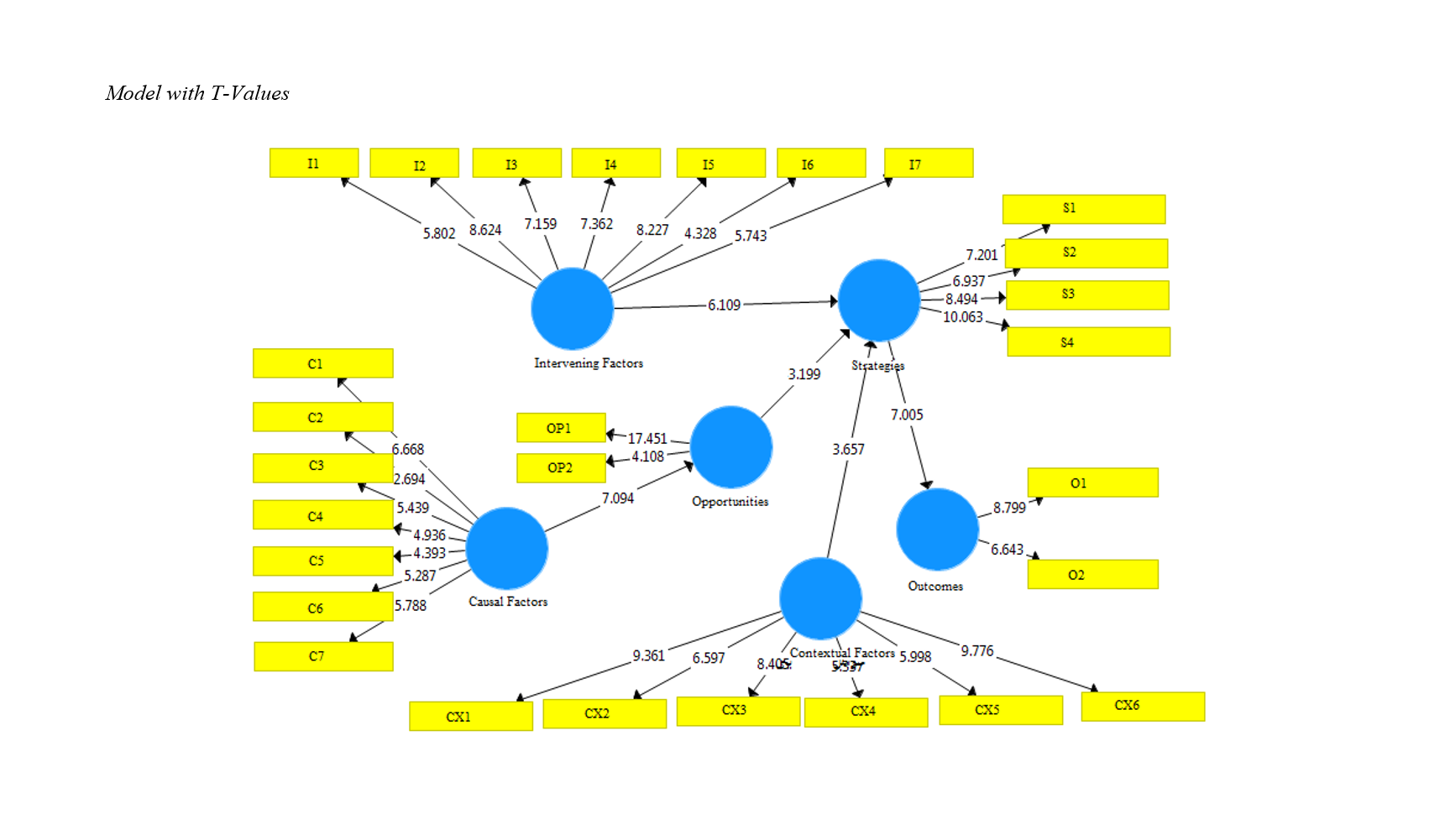Design and Elaboration of a Predictive Factors Model for Entrepreneurial Opportunities in International Companies Using a Mixed Methods Approach
Keywords:
Predictive Factors, Entrepreneurial Opportunities, Grounded Theory, Mixed Methods ApproachAbstract
Objective: The present study aims to design a model of predictive factors for entrepreneurial opportunities in international companies.
Methodology: This study employs a mixed methods approach (qualitative-quantitative), with data collection conducted in both qualitative and quantitative sections. In the qualitative section, data were gathered through the study of documented sources and semi-structured interviews with 17 managers and experts in the field of entrepreneurship. These individuals were selected using purposive and snowball sampling and data were analyzed using the software MAXQDA18 through the grounded theory method. In the quantitative section, data from 148 senior and mid-level managers of international companies based in Tehran were collected using a researcher-made questionnaire and convenience sampling, and then tested using structural equation modeling.
Findings: The results indicated that causal conditions (unexpected events, industry-based changes, market structure changes, method-based deficiencies, value and cognition-based changes, new knowledge, and demographic characteristics) impact the phenomenon of entrepreneurial opportunities. The strategies included organizational strategies, market-related strategies, business strategies, and effective performance management. Contextual conditions (capital, corporate factors, individual characteristics, and social factors) and intervening conditions (environmental factors, personality traits, driving forces, economic factors, and errors) also influenced the strategies, which in turn had a positive impact on the outcomes.
Conclusion: The results suggest that based on the views and opinions of senior and mid-level managers of international companies regarding the indigenous model of predictive factors for entrepreneurial opportunities, planners should leverage the effective factors in this model to advance their objectives.
Downloads

Downloads
Additional Files
Published
Issue
Section
License
Copyright (c) 2024 Ali Farahani (Author); Younos Vakil Alroaia (Corresponding Author); Faride Haghshenas Kashani, Ali Faez (Author)

This work is licensed under a Creative Commons Attribution-NonCommercial 4.0 International License.















